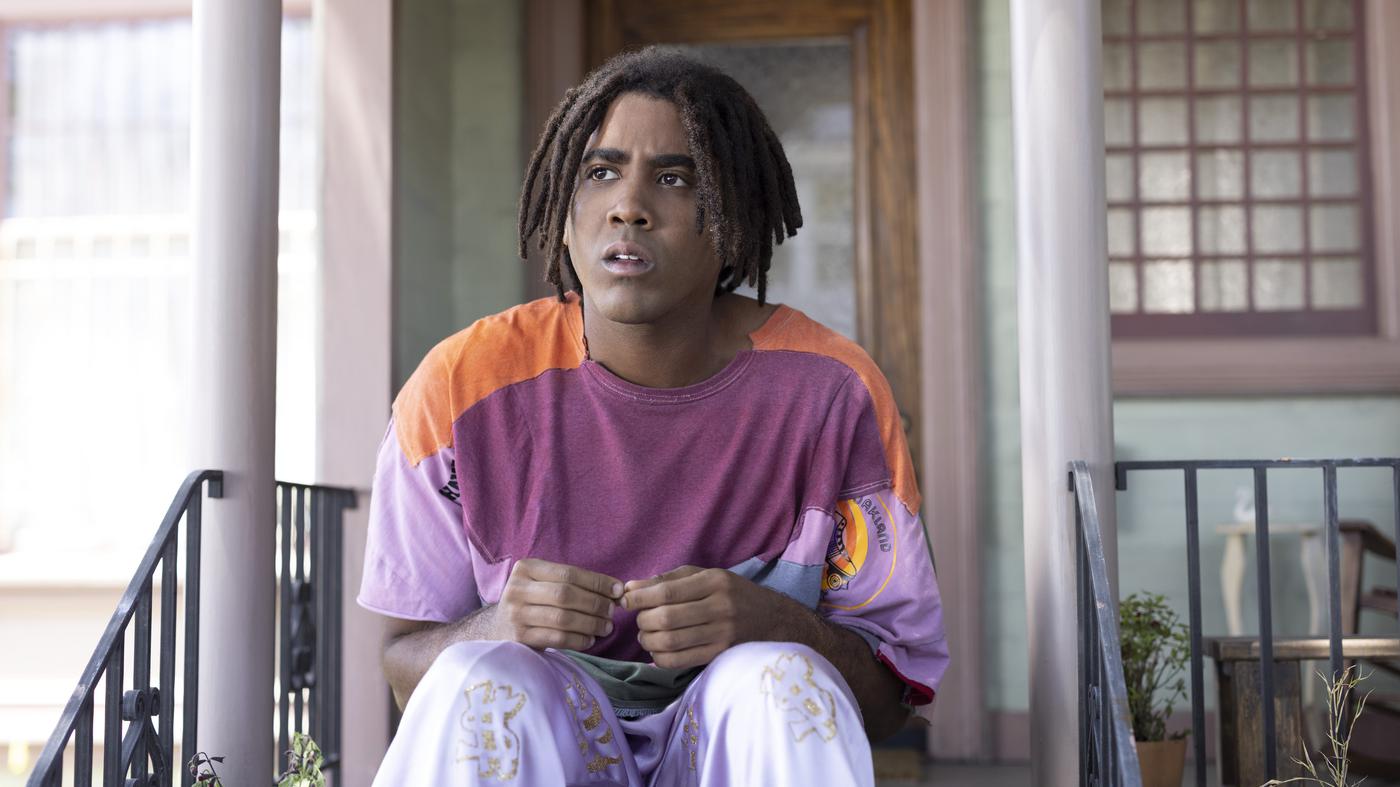As if life as an African American teenager in Oakland, California (after all, where the Black Panther Party was founded) wasn’t difficult enough, Cootie is literally born a giant baby. In the Amazon mini-series “I’m a Virgo” the American director Boots Riley is less interested in biological questions than in the social consequences of this miracle. Why isn’t there a black superhero to take care of the problems of his own people in the abandoned, impoverished neighborhoods of America’s big cities?
America is afraid of a black teenager
As a teenager, Cootie barely fits into the little house in his black neighborhood. His father Martisse (Mike Epps) and his aunt Lafrancine (Carmen Ejogo) have to hide the teenager with growth spurts because: “You are a four-meter-tall black man. They’re afraid of you!”
Boots Riley rose to prominence in the early 2000s as the mastermind of the Marxist comedy/hip-hop group The Coup, and his 2018 directorial debut Sorry to Bother You defined a sort of Afro-surrealism with a pastiche of critique of capitalism, Black consciousness and absurdist fantasy satire. Like a collage, “I’m a Virgo” is structured: fast-food chain commercials, “Simspons”-esque nonsense cartoons, agit-prop from the news, and talk-show bits starring tech billionaire Jay Whittle (Walton Goggins ), reinventing himself as the superhero The Hero, swarm Cootie in his oversized bedroom.
Recommended Editorial Content
At this point you will find external content selected by our editors, which enriches the article with additional information for you. Here you can display or hide the external content with one click.
I consent to the external content being displayed to me. This allows personal data to be transmitted to third-party platforms. You can find more information on this in the data protection settings. You can find these at the bottom of our page in the footer, so that you can manage or revoke your settings at any time.
Until a group of teenagers, led by queer neighborhood activist Jones (Kara Young), frees him from hiding and takes him on their nightly cruising tours of Oakland and its clubs. The “Twamp Monster” becomes an urban legend.
“All art is propaganda,” the motto of law-and-order philanthropist Whittle also applies to Riley, whose activism has never gotten in the way of his wit and sense of the absurd. “I’m a Virgo” has become a rarity in the increasingly streamlined series landscape, in which there is hardly any room for narrative experiments.
Unlike his highly bizarre directorial debut, this time Riley is more serious about his characters. Cootie simultaneously experiences the coming of age of a teenager – and the local superhero. He first has to find his way in the world and learn that despite his celebrity status, he is also viewed with hostility.
On the one hand, he is helped by Flora (Olivia Washington, Denzel Washington’s daughter), who works in the burger shop that Cootie sees as the symbol of his new freedom – but in Riley’s America panorama it functions more as a symbol of capitalist exploitation. “I’m a Virgo” occasionally becomes fundamental in his view of the world and enemy.
Leader of a new civil rights movement
Even during his musical career, Oakland was something of a fortress of loneliness that is constantly under threat: from white America, from capital, from the ailing health system – an alternative to San Francisco and Silicon Valley on the other bank of the Bay Area.
“I’m a Virgo” is populated by the strangest characters. In addition to Whittle aka The Hero, who ensures law and order in a jet-powered superhero costume, an obscure giant cult and a windy sports agent have chosen Cootie as a kind of – if only monetary – saviour. Jones is the only one of his new friends who recognizes Cootie’s revolutionary potential: a four-meter-tall black youth who could also lead a new civil rights movement.
At the same time, Riley keeps breaking up the Manifest character’s story with surreal vignettes and his hero’s coming-of-age story. These opposites lead to a somewhat crude parallel montage in the fourth episode, which revolves around the challenge of having sex with a four-meter-tall boy. But the crude and the improvised are part of Riley’s modus operandi, so to speak.
The rhythm of the seven episodes does not follow any narrative economy, the animation technique is not based on digital special effects, but on the use of mechanical puppets, camera effects and playing with optical perspectives. Boots Riley’s superhero remains firmly anchored in material reality.
The marvelous eyes of the great Jharrel Jerome (from Ava DuVernay’s When They See Us miniseries) are, in a way, ours as well, through which we see this recognizable Oakland between social repression, its keen sense of community, and magical realism. Cootie really just wants to play. But America doesn’t make it that easy for a black teenager.
